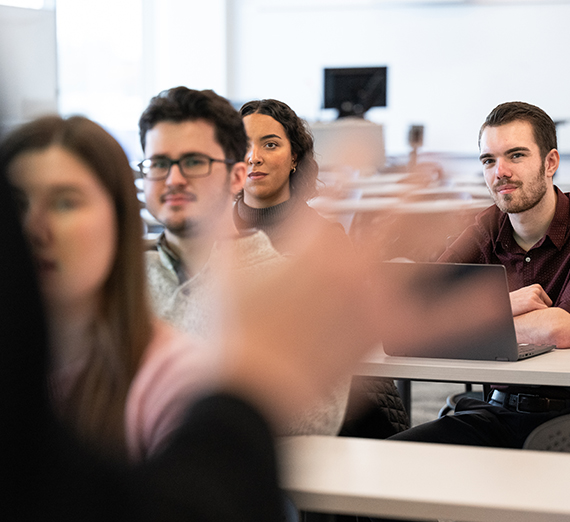Faculty to Utilize First-Year Seminars in Pursuit of Undergraduate Research

For students who’ve known their major since middle school or for those who can’t decide – the first-year seminar is an introduction to Gonzaga and the University core.
A required credit, sure, but the limits end there.
With topics ranging from robots and music to a seminar simply called “Failure,” the classes work to show students the reality of academic classes.
Two professors in opposite disciplines are hoping to utilize the first-year seminar to introduce a new reality to incoming students, one many may not even realize is possible – research.
“Undergraduate research improves a lot of outcomes for students,” says Jeff Watson, professor of chemistry and biochemistry. “Studies show it improves grade point averages, retention and graduation rates, satisfaction and ownership over their education.”
Watson and Katey Roden, associate professor of English and women, gender and sexuality studies, are spearheading the Interdisciplinary Research Teams Initiative.
It’s a new effort to bring faculty from across the University together with the goal of engaging incoming students in a research project right off the bat. The pair is asking teams of faculty members to spend the spring semester developing a first-year seminar that uses research as a teaching vessel – with a few stipulations.
The teams must consist of faculty from at least two different disciplines.
Roden and Watson first got the idea after Watson stepped in to guest lecture in Roden’s class. She was jokingly offended when, at the end of the semester, many of her students said it was their favorite day of class. The pair realized they were on to something.
A pillar in Gonzaga’s mission and an integral part of the Jesuit identity – fostering work across many disciplines not only makes class more engaging, but it ensures students are developing their whole person.
Accepted teams will be required to attend a monthly workshop, develop and then propose a new seminar to be taught in fall 2025 and 2026 by at least one member of the team. The final stipulation – the seminars must utilize a “significant undergraduate research experience.”
It’s a matter of breaking down barriers, Roden says. Undergraduate research carries a lot of stigmas, often associated with labs and white coats, maybe petri dishes. That can make it feel intimidating, maybe even unattainable to some students. While Watson says there certainly is research happening behind lab doors, that’s not the only place.
“There are a lot of different ways to do research,” he says. “It might be collecting oral histories, it might be in literature, it might be all sorts of things. Each discipline brings a different set of methodologies to the process.”
Roden and Watson hope these new seminars show students there is no mold for what a student researcher should be. In fact, when I told Roden I hadn’t participated in any undergraduate research during my time as a student, she challenged me.
“I’m willing to bet you did,” she said, “but it probably wasn’t framed that way for you. So, by calling it what it is, we’re encouraging students to think about the fact that everyone from a liberal arts institution should have research experience.”
She also points out that it’s an equity issue. Watson and Roden are hoping to bridge the gap for first-generation college students and minorities who may not feel they belong in the academic sphere.
Watson says, "If we demonstrate to those students that this is the kind of thing we do, and we want them to do it along with us, that invites them to join the community in a way that goes beyond just sitting in a lecture class.”

